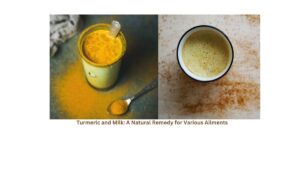Introduction:-
Naturally Managing High Uric Acid: Identification and Treatment

Understanding how to manage high uric acid levels is crucial for overall well-being. High uric acid can lead to health issues like gout, kidney stones, and joint pain. Luckily, there are effective natural methods to identify and treat high uric acid levels, promoting a healthier lifestyle without relying solely on medication. We’ll delve into practical strategies to naturally manage high uric acid levels, focusing on identification and treatment approaches
What are the initial steps involved in managing high uric acid levels naturally, focusing on the process of identifying elevated levels?
Identifying High Uric Acid Levels:
The first step in managing high uric acid levels naturally is proper identification. Symptoms include joint pain, swelling, and stiffness, especially in the big toe.
– Kidney stones can cause intense pain during urination.
– People with high uric acid levels might not have symptoms.
– Regular monitoring and blood tests are essential for accurate measurement of uric acid levels.
If you have high uric acid levels, try these natural treatments:
1.Stay Hydrated
– Drink lots of water. It helps flush out extra uric acid.
2.Change Your Diet
– Eat less purine-filled foods. These include red meat, organ meats, and some seafood.
– Eat more fruits, vegetables, whole grains, and low-fat dairy products.
3.Limit Alcohol
– Cut back on beer and spirits. They can raise uric acid levels.
4. Weight Management:
– Keeping a healthy weight is key to managing uric acid levels.
– Too much body weight can raise uric acid production and make it harder to pass out of the body.
– Regular exercise and a balanced diet can help maintain a healthy weight.
5. Herbal Supplements:
– Some herbs and supplements may naturally lower uric acid levels.
– Examples include tart cherry juice, turmeric, ginger, and celery seed extract.
– But talk to your doctor before adding any supplements to your routine.
Is non-veg food responsible for high uric acid?
Meat, fish, and organ meats can make uric acid levels in your body go up. Uric acid can cause gout, kidney stones, and other health issues. If you have high uric acid, you should cut down on meat, fish, and organ meats.
Eating meat doesn’t always mean you’ll have high uric acid levels. Other things like your genes, what you usually eat, how you live, and your overall health can also affect it.
Talking to a doctor or dietician can help you control your uric acid levels through your diet.
What specific dietary recommendations can help in reducing high uric acid levels, and which foods or substances should be avoided to effectively manage this condition?
Dietary recommendations for reducing high uric acid levels typically involve:

Dietary recommendations for reducing high uric acid levels typically involve:
Hydration: Drinking plenty of water helps to dilute uric acid and promote its excretion through urine. Aim for at least 8-10 glasses of water per day.
Low-purine diet: Foods low in purines can help prevent the accumulation of uric acid. These include fruits, vegetables, whole grains, low-fat dairy products, and tofu.
Cherries and berries: Cherries and berries, such as strawberries and blueberries, contain compounds that may help lower uric acid levels. Incorporating these fruits into your diet can be beneficial.
Limit purine-rich foods: Certain foods high in purines should be consumed in moderation or avoided altogether. These include red meat, organ meats (like liver and kidneys), shellfish, and certain types of fish (such as anchovies, sardines, and mackerel).
Limit alcohol: Alcohol, especially beer and spirits, can increase uric acid levels in the body. Limiting or avoiding alcohol consumption, particularly during gout flares, is recommended.
Reduce sugary foods and beverages: High-sugar foods and drinks, particularly those containing fructose, may raise uric acid levels. Limiting intake of sugary foods, sweetened beverages, and high-fructose corn syrup can help manage uric acid levels.
Maintain a healthy weight: Excess body weight is associated with higher uric acid levels. Engaging in regular physical activity and adopting a balanced diet can help achieve and maintain a healthy weight, which may reduce uric acid levels.
It’s essential to consult with a healthcare professional or a registered dietitian for personalized dietary recommendations tailored to your individual health needs and condition. Additionally, monitoring uric acid levels regularly and making appropriate adjustments to your diet and lifestyle can help effectively manage high uric acid levels over time.
Can high uric acid be cured permanently?
High uric acid levels can be controlled. You can make healthy lifestyle changes, change your diet, or take medicine. But some things, like genes and health problems, can’t be changed. They make people more likely to have high uric acid levels.
Sometimes, it can be hard to treat high uric acid levels. But it can often be managed with treatment and healthy habits. Follow your doctor’s advice. Live a healthy life. Eat the right foods. You can control your uric acid levels and prevent problems like gout or kidney stones.
People with high uric acid should talk to their doctors to create a treatment plan. Checking uric acid levels and managing them helps people stay healthy and active, even with high uric acid levels.
Conclusion:
Effectively managing high uric acid levels naturally is achievable through proper identification and the implementation of lifestyle changes. By staying hydrated, making dietary modifications, limiting alcohol intake, maintaining a healthy weight, and incorporating herbal supplements, individuals can take proactive steps towards reducing uric acid levels and promoting overall health. Remember to consult with a healthcare professional before making any significant changes to your diet or lifestyle, especially if you have underlying health conditions or are taking medications. With dedication and consistency, it’s possible to naturally manage high uric acid levels and enjoy a healthier, more vibrant life.
FAQs:
- What causes high uric acid levels naturally?
- High uric acid levels can be caused by various factors such as genetics, diet rich in purines, obesity, certain medical conditions like kidney disease, and medications.
- How can I naturally lower my uric acid levels?
- You can lower uric acid levels naturally by staying hydrated, consuming a balanced diet low in purines, avoiding alcohol and sugary beverages, maintaining a healthy weight, exercising regularly, and managing stress.
- What are the complications of high uric acid levels?
- Complications of high uric acid levels include gout, kidney stones, and in severe cases, kidney damage or kidney failure.
- What foods should I avoid if I have high uric acid levels?
- Foods high in purines should be limited, such as red meat, organ meats, seafood, and alcohol, particularly beer and spirits.
- Are there any natural supplements that can help manage high uric acid levels?
- Some natural supplements like cherry extract, vitamin C, and certain herbs like turmeric and ginger may help lower uric acid levels. However, it’s essential to consult with a healthcare professional before taking any supplements.
References:
- Choi HK, et al. (2005). Purine-rich foods, dairy and protein intake, and the risk of gout in men. New England Journal of Medicine, 353(7), 738-747.
- Zhang Y, et al. (2006). Cherry consumption and decreased risk of recurrent gout attacks. Arthritis & Rheumatism, 54(3), 911-917.
- Khanna D, et al. (2012). 2012 American College of Rheumatology guidelines for management of gout. Arthritis Care & Research, 64(10), 1431-1446.
- Dalbeth N, et al. (2016). 2016 updated EULAR evidence-based recommendations for the management of gout. Annals of the Rheumatic Diseases, 76(1), 29-42.
- Dessein PH, et al. (2011). Beneficial effects of weight loss associated with moderate calorie/carbohydrate restriction, and increased proportional intake of protein and unsaturated fat on serum urate and lipoprotein levels in gout: a pilot study. Annals of the Rheumatic Diseases, 70(2), 303-310.








